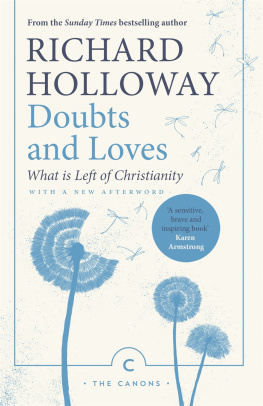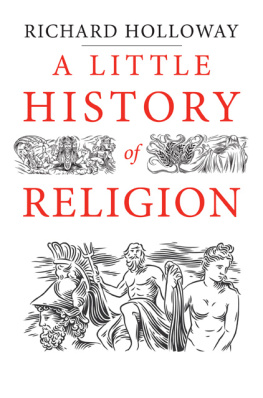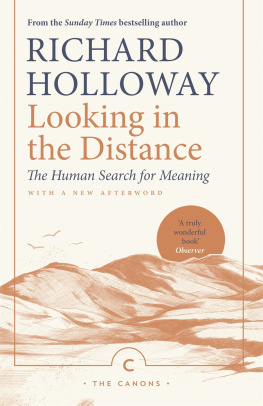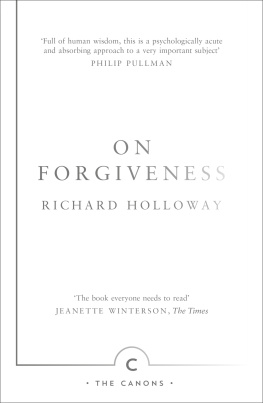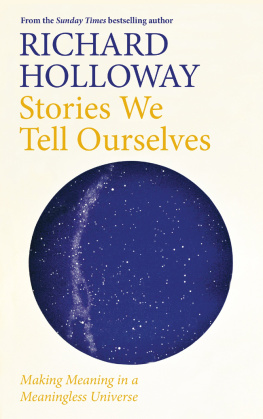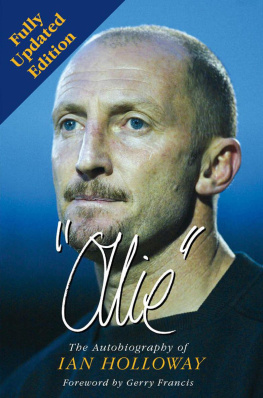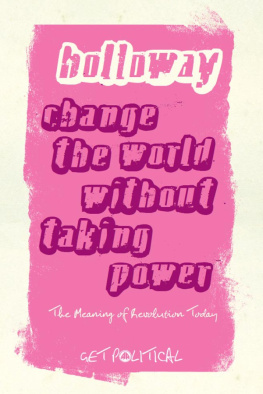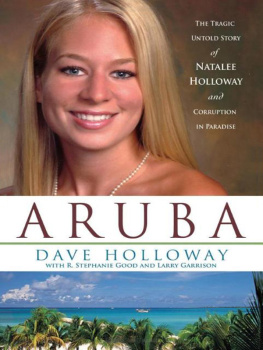For Annie
with love
From the place where we are right
flowers will never grow
in the Spring.
The place where we are right
is hard and trampled
like a yard.
But doubts and loves
dig up the world
like a mole, a plough.
And a whisper will be heard in the place
where the ruined
house once stood.
Yehuda Amichai
Contents
Two events prompted me to write this book. The more immediate was a letter from the philosopher Mary Warnock to Jamie Byng of Canongate. Jamie had sent Lady Warnock a copy of my book Godless Morality, hoping that she might offer it a word of commendation. In her reply she praised my book warmly, but she ended her letter with these words: I personally was sorry that Godless Morality ended where it did. I had hoped that in the epilogue there would be a discussion, however brief, of the role of religion, once it is detached from being the foundation of the moral. This book responds to that invitation with the paradoxical suggestion that it is the moral passion that is the enduringly valuable part of the Christian religion.
But I now recognise that there was another element at work in me while I was writing it, and that was the memory of the Lambeth Conference of 1998. Every ten years, Anglican bishops from throughout the world meet at Canterbury to plot a course for the Anglican Communion for the following decade. In the event, Lambeth 1998 turned out to be the most traumatic experience of my life. The hot topic was the status of homosexuals in the Church. I went to Canterbury navely expecting that we would craft a classic Anglican compromise that would allow us to go on working together till some kind of creative consensus emerged in the future. In the event, the debate on the subject turned into an ugly rout, with the vast majority of bishops passing a resolution that condemned homosexuals as sinful. But it was the tone of the debate that was devastating. It was filled with a hateful glee that prompted one English bishop to liken it to a Nuremberg rally. To me it was like stumbling on a lynching organised by your own brothers. Looking back, I can now see that something profound happened to me during those hours that has radically altered my attitude to Christianity.
The shift started one lunch time during the conference, which was held on the campus of the University of Kent. Anticipating the debate, a group of Christians mounted a demonstration, holding up banners of the sort that gay and lesbian people are familiar with: No sodomite can enterthe kingdom of heaven, Abandon your evil practices or God willsmite you. My wife got hold of their leaflets and threw them in the nearest bin; but the thing that both heartened and saddened me was the action of a group of students who politely told the demonstrators how offensive and out of place their attitudes were in a university that prized human rights and personal freedom. They were answered with texts from the Bible. Puzzled, the students tried again to explain to the demonstrators how abusive and insulting their presence was. Again they were answered from the Bible. Finally, the students shrugged their shoulders and wandered off. I dont know what these students beliefs were, but I am fairly certain that their encounter with Christianity that day scandalised them. They had met blind prejudice and ugly hatred paraded in the name of Jesus, and they had rejected them.
This growing sense in me that certain aspects of Christianity were becoming a scandal to the young was reinforced the day after the debate. A few of us at the conference, not many, had worn a rainbow ribbon to signify our commitment to the cause. After the debate, the ribbons suddenly sprouted on the breasts of the young people who served food to us in the dining hall. They wore the ribbons as quiet badges of protest against a religious culture that had trampled on one of their most fundamental ethical values, which is not simply tolerance for, but celebration of, the wonderful variety of humanity. Again I sensed a gulf of understanding and moral sensibility between the conference and the young people who graced it with their work on our behalf. This time, it was courageous, though politely silent, witness against injustice.
It is tragic that the religion that grew round the remembrance of Jesus of Nazareth should have become the vehicle of such hatred and intolerance. This book tries to show how that happened and why it is such a perversion of the angry pity of Jesus. It has been written in order to reclaim that pity in the task of constructing a new understanding of Christianity for our time.
All changed, changed utterly
W.B. Yeats, Easter 1916
Some years ago I copied into my note book an aphorism from a Russian writer called V.V. Rozanov: All religions will pass, but this will remain: simply sitting in a chair and looking in the distance. I would like to reverse Rozanovs claim and suggest that religion will remain as long as we sit in that chair looking in the distance. Another way of expressing the same thought is to use the vocabulary of the German theologian Paul Tillich, who did his greatest work in the United States after the Second World War. Tillich said that, in addition to the ordinary matters that preoccupy us, our humanity asks deep questions about the meaning of life. He called this our ultimate concern and the way we respond to it is what we call religion, even though that word has become exclusively associated in peoples minds with the supernatural answer to the question. Even if we reply that life has no final meaning, we are still offering that as an answer to our ultimate concern. In fact, this is the reply that is given by the scientist Richard Dawkins: Nature is not cruel, only pitilessly indifferent. This is one of the hardest lessons for humans to learn. We cannot admit that things might be neither good nor evil, neither cruel nor kind, but simply callous indifferent to all suffering, lacking all purpose. but the idea of the ultimate meaninglessness of the universe is itself a response to our concern. Whether it is paradox or irony, the discovery of non-meaning or nihilism is itself a kind of meaning, if only because it means something to us, is something we ourselves read from the reality that confronts us. Just as interesting as the answers that Nietzsche and Dawkins give is the fact that they themselves are so passionately engaged in wrestling with the question. It is in the nature of humans to do this; in us, life has started to ask questions about itself. The religious quest is the deepest passion of our nature, because it is prompted by our ultimate concern. Unfortunately, like many aspects of our history, religion has been dominated by special interest groups who claimed that only their answers were true and that everyone else was in error. It is not surprising that this has happened: it is just another example of how the world ran itself for so long. Those in authority not only organised things to suit themselves, they interpreted things to suit themselves. It didnt matter what the system was, as long as they called the shots.
The folly of subjecting the religious passion to the politics of power is that it cannot be controlled in this way and refuses to be subject to external direction. I suspect that this is what the writer and film-maker Dennis Potter meant when he said just before his death: Religion to me has always been the wound not the bandage. get very agitated about religion and politics, because it is impossible to establish their incontrovertible truth.
The fascinating thing about our own day is that our attitude to these matters is beginning to change. If I can use the Rozanov metaphor one last time: today we positively revel in and celebrate the fact that there are almost as many chairs for distance-gazing as there are people to sit in them. Today there is no universally accepted answer to the question posed by our ultimate concern. The dominant characteristic of what is called post-modernity is the absence of agreement on the core meanings and values that undergird the human experience. Scholars call these underground streams of value and meaning metanarratives and they tell us that the main characteristic of our society is its lack of agreement on how to understand and order human communities. In their language, we have no common metanarrative. We describe our society today as multicultural and its values as plural. The leaders of most religious institutions deplore this situation, for fairly obvious reasons. They talk contemptuously of pick and mix Christians or cafeteria Catholics who take what they want from traditional religious systems and ignore what is not congenial. While unattractive, their dyspepsia is understandable. After all, if you are invested in the proclamation of a particular system of meaning and value, which you believe to be not one among many, but the only true and saving one, then you are bound to be disturbed by the new plural culture. Religious officials feel the way all monopolists feel when competition invades their market place: they resent it, precisely because it threatens their dominance. Another important characteristic of post-modernity, which is reflected in effective business ventures, is the flattening of hierarchies and the sharing of patterns of governance. Though still more honoured in theory than in practice, there is also a commitment to equal treatment for women and sexual and ethnic minorities. All of this is in marked contrast to life in traditional religious systems, such as Christianity.

